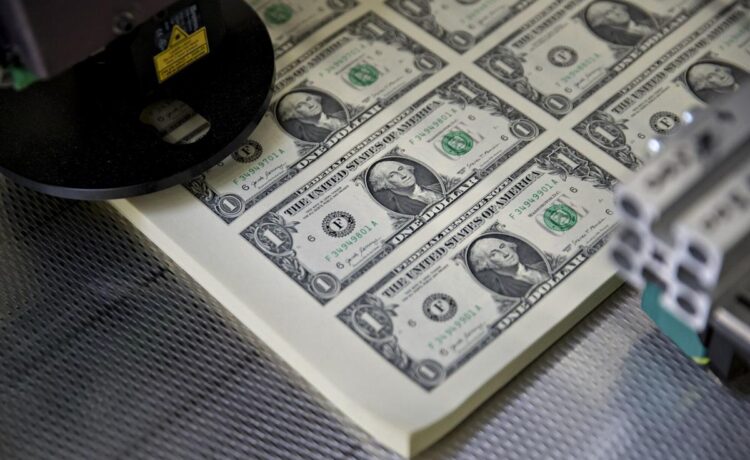(Bloomberg) — A Bloomberg gauge of the dollar dropped the most on record as fears grew that President Donald Trump’s sweeping trade tariffs would batter the US economy.
Most Read from Bloomberg
The Bloomberg Dollar Spot Index tumbled as much as 2.1% on Thursday, the measure’s sharpest intraday decline since its launch in 2005. Investors are bearish on the dollar in the coming month for the first time since September, options data show.
The tariff regime “hurts US credibility and will have a more negative impact on the US consumers and companies, if it will remain on for any significant length of time,” said Leah Traub, a portfolio manager and head of the currency team at Lord Abbett & Co. “This will drive investors away from the US and will cause the dollar to depreciate.”
Listen to the Here’s Why podcast on Apple, Spotify or anywhere you listen.
The greenback fell against all Group-of-10 peers Thursday, with havens the Japanese yen and Swiss franc leading gains. The euro rallied as much as 2.7%, the single currency’s sharpest intraday gain in close to a decade, while nearly all emerging-market currencies tracked by Bloomberg advanced. Bond markets around the world rallied amid a slide in global equities.
The weakness in the dollar comes as traders struggle to assess how the measures — which were harsher and wider-ranging than many had expected — will impact US growth and inflation in the coming months.
For now, many see a slowdown in the US economy as a bigger threat than a resurgence in inflation. That’s fueling bets that the Federal Reserve will cut rates further than expected to boost growth, adding to depreciation pressure on the greenback.
“The Fed’s path to bring about disinflation without a significant slowing of the economy or high unemployment is narrowing,” said Elias Haddad, a strategist at Brown Brothers Harriman & Co. in London. “This is bad news for the dollar.”
Deutsche Bank Warns Dollar at Risk of Broad ‘Confidence Crisis’
Hedge funds have increased their bearish bets on the dollar, mainly versus the yen and the euro, while also bracing for higher volatility into year-end, according to currency traders familiar with the transactions who asked not to be identified because they aren’t authorized to speak publicly.
















